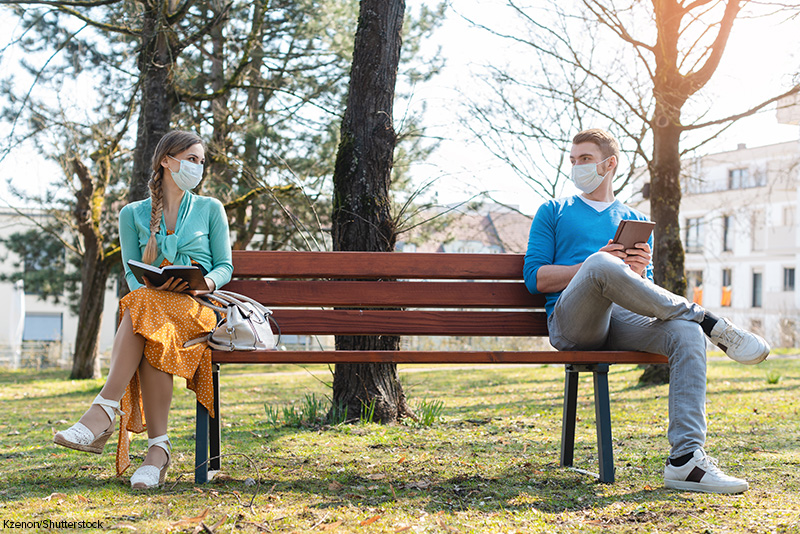
Biden’s Childcare Plan
Did you go to private childcare when you were younger? Do you have younger siblings that attend daycare, summer camp, or some other care program that your parents pay for? If so, you are not alone. Many working parents rely on these services daily. But the expense of childcare makes it a burden for many parents. And some people can’t afford it at all, which impacts job opportunities and many other economic decisions.
Joe Biden, 2020 Democratic presidential candidate, has suggested a plan to address this emergency. If Biden is elected, he says he will propose a $775 billion childcare expansion. The goal is to use a combination of tax credits and state funding to lower the cost of childcare and increase people’s access to this service.
The plan also commits additional funds to help improve the quality of childcare as well, by creating new statewide standards, raising the minimum wage for childcare providers, building new and upgraded facilities, and making preschool mandatory. For those wondering how to pay for this, Biden says the money will come from closing tax loopholes for wealthy investors.
What Do You Think? Do you think the federal government should provide funds to make childcare more affordable for American families? Why or why not?
China’s Mission to Mars
Last Thursday, China launched what could become its first successful mission to Mars. At 12:40 pm local time, the Tianwen-1 Mars probe was launched from Wenchang Spaceport on Hainan Island, China. (The name Tianwen means “questions to heaven” and is taken from a poem by the great ancient poet Qu Yuan.) If successful, China will be the third nation to successfully land on Mars. It also will be the first time in history that a spacecraft will orbit, land, and release a rover on the planet all in one trip.
It will take until February 2021 for the spacecraft to travel to Mars. The landing itself, however, won’t occur until April. Among other things, the mission’s basic goals are to map the planet; examine its soil, water/ice, and climate; and study its magnetic and gravitational fields to learn more about its internal structure. While the orbiter will survey the entire planet, the surface rover will travel to specific locations of interest to conduct more detailed and thorough investigations. The rover will spend about ninety Martian days exploring the red planet.
China previously attempted an unsuccessful mission to Mars in 2011. Then, the Yinghuo-1 spacecraft never made it out of Earth’s orbit due to faulty rocket firing. China is also not the only country with its eyes on Mars at the moment. Last week, the United Arab Emirates became the first Middle Eastern nation to launch a probe to the planet, and later this year the United States plans to launch the Mars rover Perseverance.
Dig Deeper What two nations have already successfully landed on Mars?
Scientists Say “Mask Up”
One of the easiest ways to fight the spread of the coronavirus is to wear a mask or other facial covering in public. But many people still aren’t obeying requests by governors and other officials to voluntarily wear masks. So three Midwestern states–Minnesota, Ohio, and Indiana–have now joined other states issuing mask mandates. New regulations now require masks be worn indoors in public places, and outdoors where social distancing isn’t possible.

The mandates are flexible for people who may have medical issues preventing them from wearing a mask. But the governors of these three states cite sources such as the Center for Disease Control in saying that masks are a cheap and effective way to get skyrocketing infection numbers under control. According to Republican Governor Mike DeWine of Ohio, if people follow the mask order, infection rates will dip significantly in a matter of weeks, allowing Ohioans to get back to their normal lives. Many scientists agree that if everyone agrees to wear a mask, it’s possible that another complete lockdown could still be avoided.
Facial coverings help block airborne droplets that carry the virus. Scientists at the University of Washington’s Institute for Health Metrics and Evaluation gathered many scientific studies of the effectiveness of masks and reevaluated all of that data in a meta-analysis. Their conclusion suggest that if 95 percent of people start wearing masks now, 34,000 fewer Americans than what is currently predicted may die by November 1..
Masks aren’t a magic solution. They won’t solve the coronavirus crisis alone. Some state governments have issued mandates to wear masks as a safety measure. Masks aren’t a magic solution. They won’t solve the coronavirus alone. But it is something easy that most people can do to help stop the spread of the virus.
Dig Deeper What are the mask requirements in your city or state? Do you think they go far enough? Too far? Explain.
American Museums in Trouble During Pandemic
A few weeks ago, btw summarized Great Britain’s plan to provide a $2 billion “bailout” package to its museums and theaters, many of which are struggling deeply in the wake of the coronavirus crisis. A recent survey conducted by the American Alliance of Museums (AAM) has shown that American museums and other cultural centers might be in just as much trouble–if not more. In fact, a survey of 760 museum directors nationwide indicates that as many as one-third may close down permanently as a result of the COVID-19 economic slowdown. And 87 percent say they’ll be able to survive less than a year with their current financial reserves.
Why have museums been hit so hard? While a small portion of museums’ income is from tax dollars, they are mostly funded by ticket sales, gift shop sales, school trips, and special events. For months, museums were closed down entirely. Now that many are in the process of reopening, social distancing guidelines limit the amount of tickets they are able to sell. Special events and other large gatherings have been cancelled indefinitely, and it will likely be a long time before school field trips take place again.
Museums provide a huge cultural benefit, of course. They preserve history, priceless works of art, and more. And according to the AAM, they also support 726,000 jobs (both directly and indirectly) and contribute $50 billion to the annual economy.
